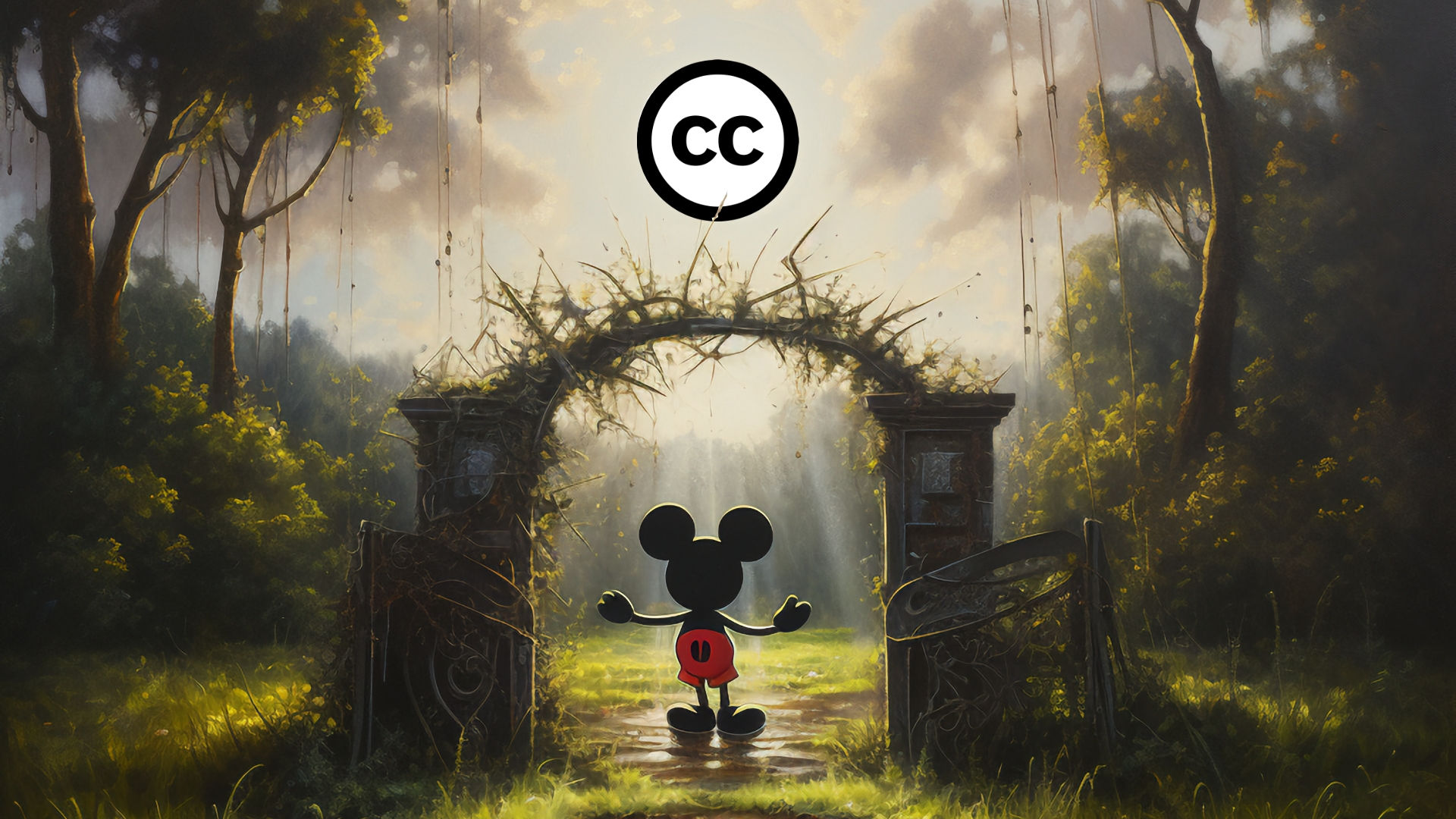Mission accomplished - what's next for Creative Commons?

Modified version of "Midjourney’s rendering of Steamboat Willie, free" by Larry Lessig
On January 1, the first version of Mickey Mouse entered the public domain in the United States, proving that copyright is indeed temporary. It was the possibility of de facto perpetual copyright extensions, raised by the last copyright term extension, that led to the creation of Creative Commons over 20 years ago. Thanks to the work of Creative Commons, the Center for the Study of the Public Domain, the Internet Archive, COMMUNIA, and many others, this gradual extension of copyright to the detriment of the public domain seems to have come to an end.
In parallel with this partial mission accomplished moment, Creative Commons also finds itself in the midst of a much broader discussion about the suitability of copyright as a regulatory instrument at the intersection of creativity and (Artificial Intelligence) technology. The emergence of powerful generative AI systems trained on copyrighted works has raised complicated questions about the ability of creators to control the use of their works in a new technological environment.
In response to the Internet, the Creative Commons licenses provided creators with a set of tools to navigate between the sharing opportunities created by the Internet and the realities of a copyright system that requires permission for almost every act of copying. They gave creators who wanted to share, tools designed to allow them to do so under certain conditions.
As generative AI emerges as a new paradigm that challenges the boundaries of copyright, many creators are looking for ways to signal their preferences for the use of their works by AI systems in ways similar to Creative Commons licenses.
At this moment, as Creative Commons faces a leadership transition, the organization would be wise to take a step back and assess this opportunity space: It seems increasingly clear that a new generation of legal tools is needed to provide legal certainty to creators and users in the contested space at the intersection of copyright and generative AI. What is needed to protect commons based projects? What do share alike and copyleft mean in a world where 1:1 copying of works is becoming less relevant? How can massive datasets be licensed to maximize their potential to serve the public interest?
At this pivotal moment for the organization, CC must now focus on understanging the fundamental changes in its operating environment before it can move onwards to redefine the next stage of its mission.